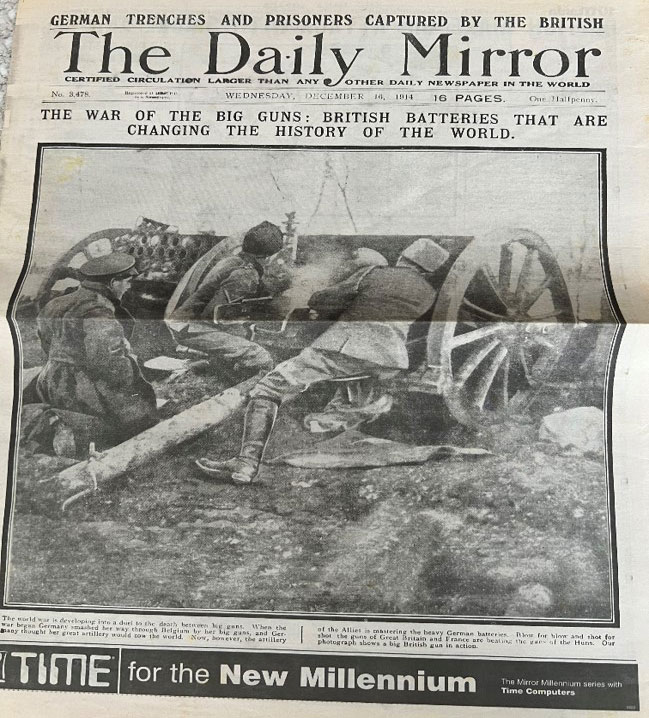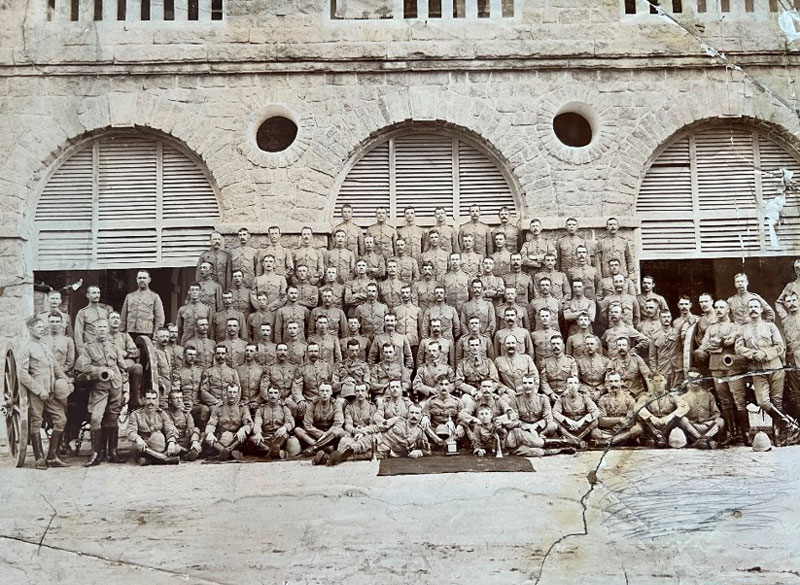Lest we forget
11 November 2024
Remembrance Day Recollections
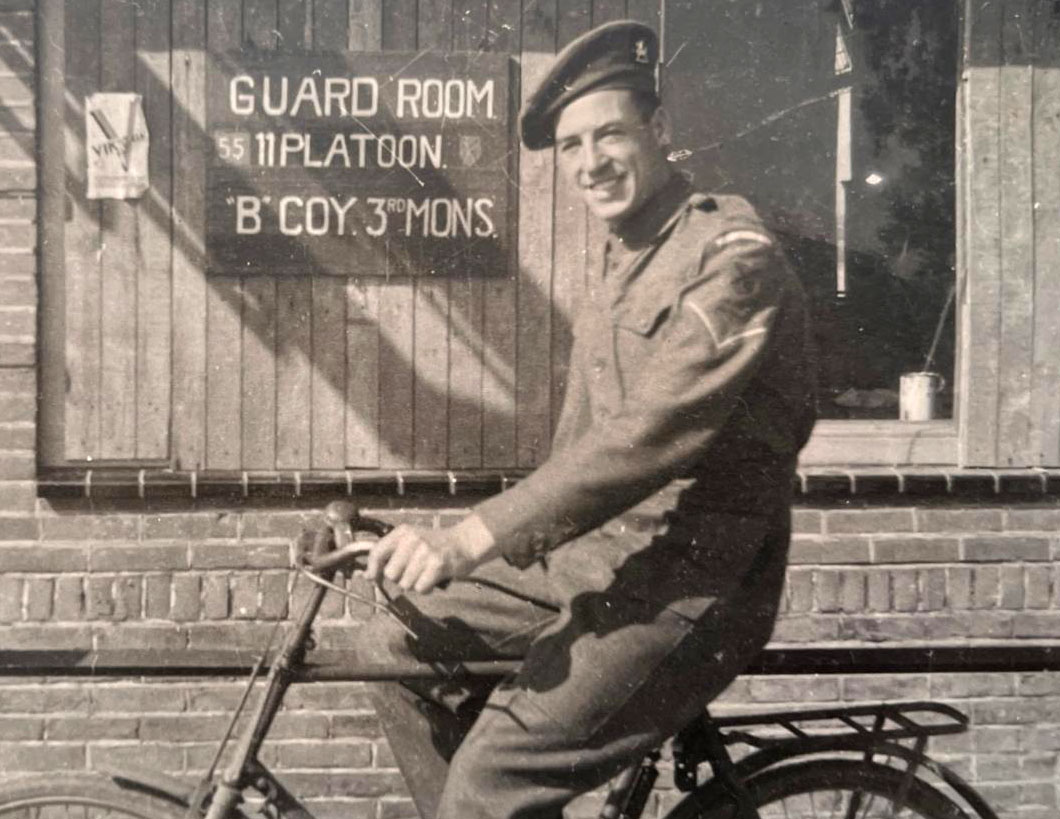
D-Day Memories
Mark Gunning recalls his Grandad's time in the Army during WW2
Dad's Army
Nathan Wilson's Great Grandpa joined Dad's Army during WW2 due to his age
Memorialised in poetry
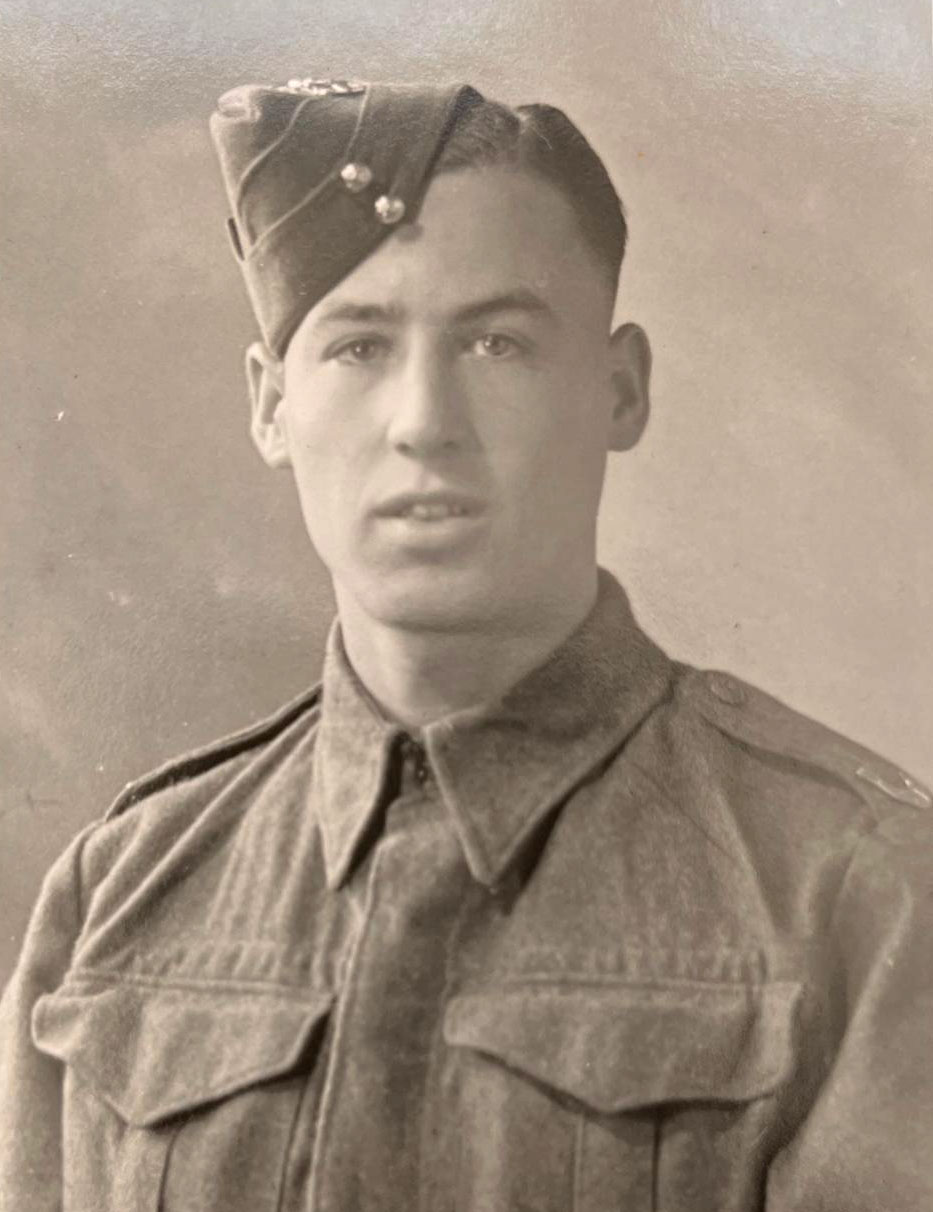
Fiona Clark’s Great Uncle David Sutherland was the subject of a poem from the Great War, written by EA Mackintosh
The Battle of Néry
Martin Richards tells the story of L Battery, Royal Horse Artillery, which repelled a German attack in WW1, with three of its members awarded the Victoria Cross
Mark Gunning recalls his Grandad's time in the Army during the Second World War
Like most of his generation, my Grandad did not really speak about his time in the Army during World War 2. However, during my time in the Defence sector I’ve had the chance to visit a few military bases including HMS Dryad and Southwick House which, in 1944, was where Allied Supreme Commander General Eisenhower, Naval Commander-in-Chief Admiral Ramsay and Army Commander-in-Chief General Montgomery planned the D-Day landings. When my Grandad passed in 2014, his medals and memorabilia of his time in the Army came to me. In his wallet was the original leaflet given to all the men of the Allied Forces on the eve of the landings and I which I had originally seen on the walls of Southwick House.
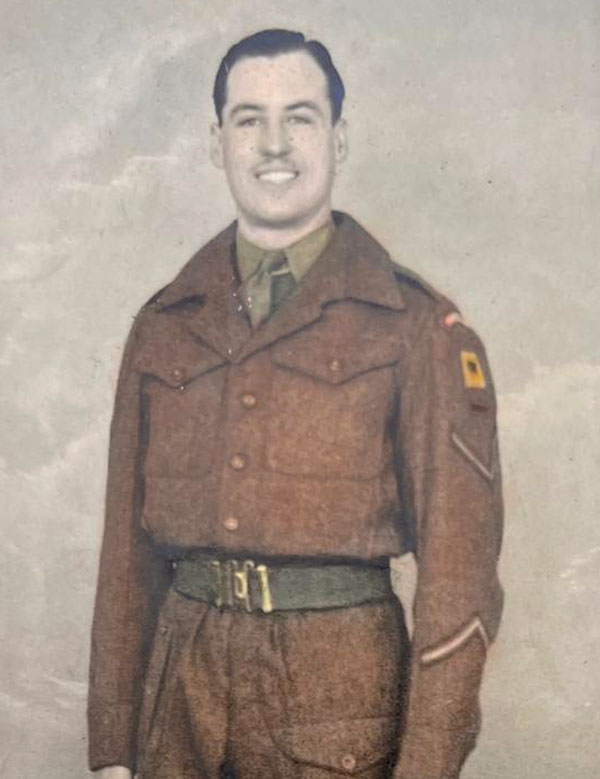
I’ve since been able to map my Grandad’s time in Europe by reading his battalion’s war diaries at the British Archives in Kew. The campaign took him through Normandy and the Lowlands, and saw him help liberate Antwerp, before entering Western Germany. He was injured by shrapnel while closing in on the Rhine at a little town called Sonsbeck on 5 March 1945. I plan to follow his path next year to coincide with the day he was injured and visit the Reichswald War Cemetery where members of his battalion, who were killed on the same day, are buried.
Former Royal Marine, Martin Pitman, reminisces and shares stories of legends
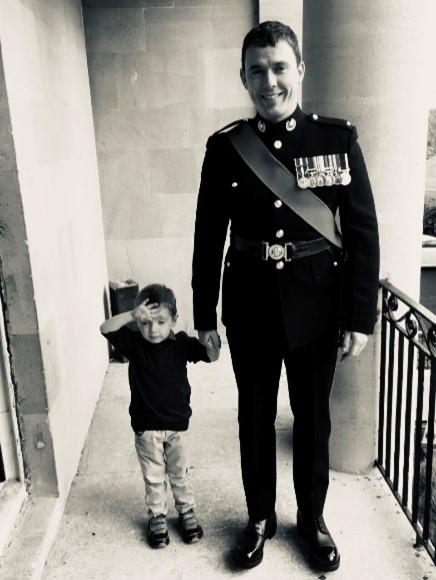
Being part of the Royal Marines for over two decades meant that Remembrance Sunday was part of my yearly calendar.
I always felt proud to serve my country and the Royal Marines gave me a fantastic opportunity to see the world, have incredible experiences and work with the most amazing people in some very austere environments.
It also allowed me the opportunity to meet veterans of a time before my service, like D-Day veteran Ken Parker. Ken was 90 when we met, but he still had the mind of a 20-year-old.
When I asked Ken about his D-Day experience and how he got through it, he just replied that he walked up the beach backwards. This way the Germans thought he was running away and wouldn’t shoot him. As a young 17-year-old of 47 Commando, he was supposed take part in D-Day and then return home. Unfortunately, due to the number of casualties that the allies had taken, Ken’s troop had to stay in France and continue with the assault on Walcheren. When asked about the two, Ken would say “D-Day was alright, Walcheren was a bit cheeky.”
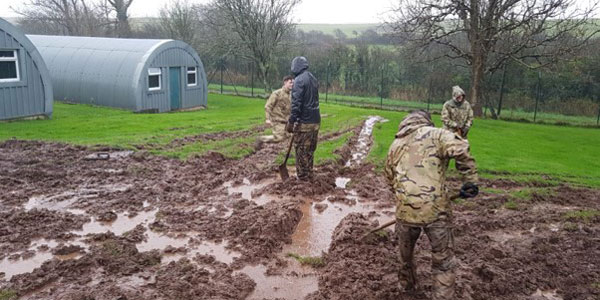
Many who have served over the past two decades will have their own war stories, with days that were “alright” and some that were “cheeky”. Sadly, not all that deployed have come home. Some that have, like Ken, have now crossed the bar due to time. Remembrance is a time where I take a moment to remember these legends. It’s my time to reminisce and share stories to the younger generation so that we never forget the sacrifice that was made.
Ashley Cromar fondly recalls his fellow soldier, Desmond Duckett, who was killed in Iraq in January 2022
I served with Desmond Duckett for four years at 14 Sigs Regt (EW). He had previously served in Afghanistan and died in Iraq in January 2022. I will always remember his love for his family, his ability under pressure, his sense of humour and mainly driving the Man truck into the building at Templeton airfield and churning up their previously immaculate grass and then having to “flatten mud” in torrential rain as a result (photo below). Through it all, he found it all hilarious, as he always did.
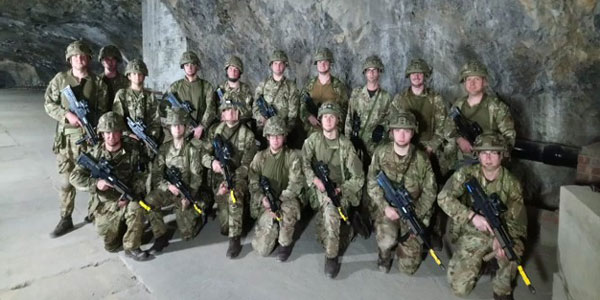
He will be missed, but he will be remembered.
Nathan Wilson's great grandpa joined Dad's Army during WW2 due to his age
My Great Grandpa, Bernard Watson, was too young to fight in WW1 and too old for WW2, so he joined the home guard – "Dad’s Army" – and was an Air Raid Precautions (ARP) Warden. I have his whistle and the ARP Warden sign they had on the house gate.
He was noted as very officious and enjoyed telling people to "put that light out", as my Dad can remember him discussing the troublemakers by name when he retold the tales of Hull blitz (which was worse than even London’s but forgotten due to being hushed to avoid the Germans knowing if they had been successful at damaging our ports).
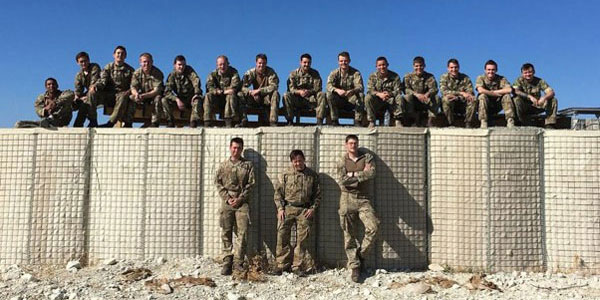
He was also the Head Accountant at Hammond’s department store in Hull, which was destroyed in the blitz and had to be rebuilt after the war.
Fiona Clark’s Great Uncle David Sutherland was the subject of a poem from the Great War, written by EA Mackintosh
David Sutherland, a Private with the Seaforth Harriers, is the subject of the EA Mackintosh war poem “In Memoriam” – a heart-wrenching poem from the point of view of Mackintosh, who was David’s officer, and who lost many men in the trenches in May 1916.
(Click on the image on the right to view it at full size)
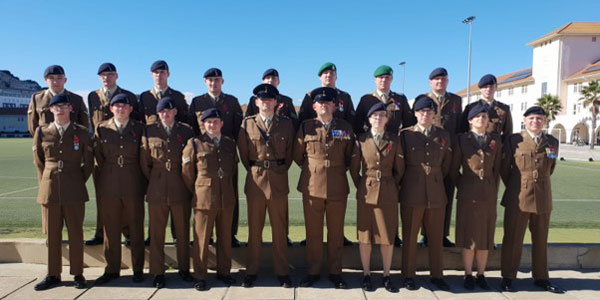
I was told that when the litter bears came to the injured David on the battlefield, he insisted they took the man next to him first, as that man had a wife and children. By the time they returned, David had died, aged 19.
David’s older sister, Barbara, born in 1895, is my grandmother. She went on to marry James, my grandfather, and they had 5 children of their own, including my mother, who found David’s grave in amongst the ~35,000 war in the Arras Commonwealth War Graves Memorial, Pas de Calais, France.
My mother visited the graves long before there were records to search, and started to walk each line, not finding him. About to give up, the sun came out and shone on a small patch of graves. He was in that patch. This story still gives me shivers!
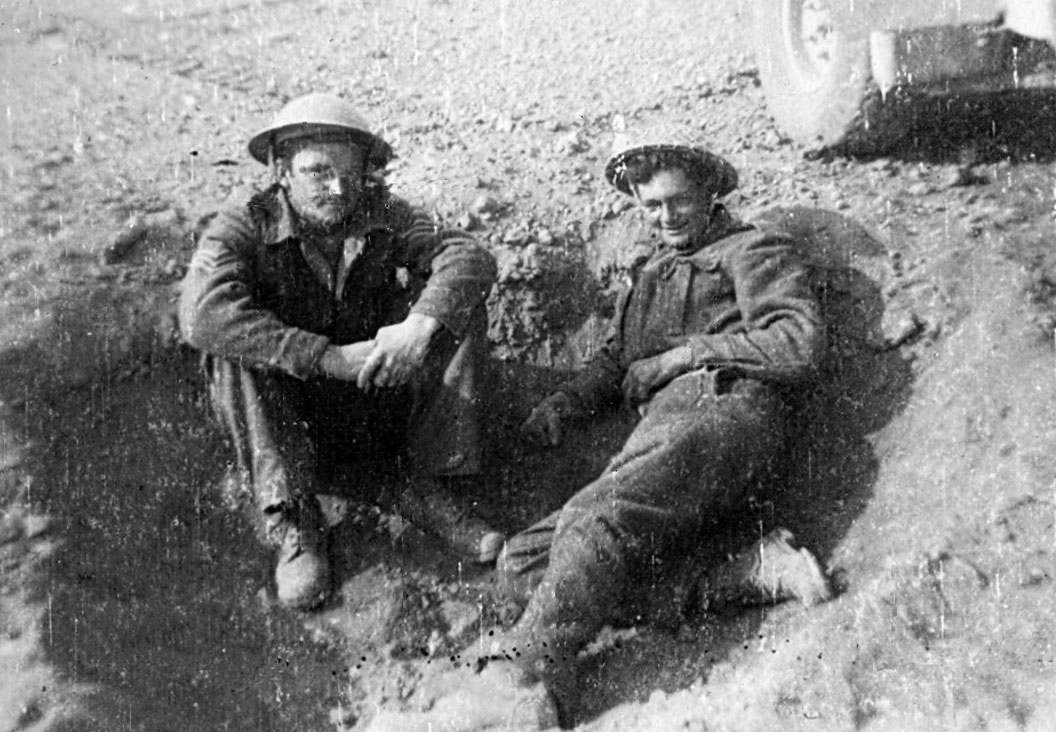
John Highcock says his Grandfather, Samuel Hilton, was haunted by one particular experience he witnessed as a young soldier in France
My Grandfather never spoke of his time in France when I was younger.
What I remember was his immaculate garden and long walks in what was then countryside and woodlands now gobbled up by Greater Manchester. I had thought that it would be memories of the front line that would be the most vivid, but in his final years he recounted a particularly traumatic event that haunted him.
I guess today we would recognise this as PTSD.
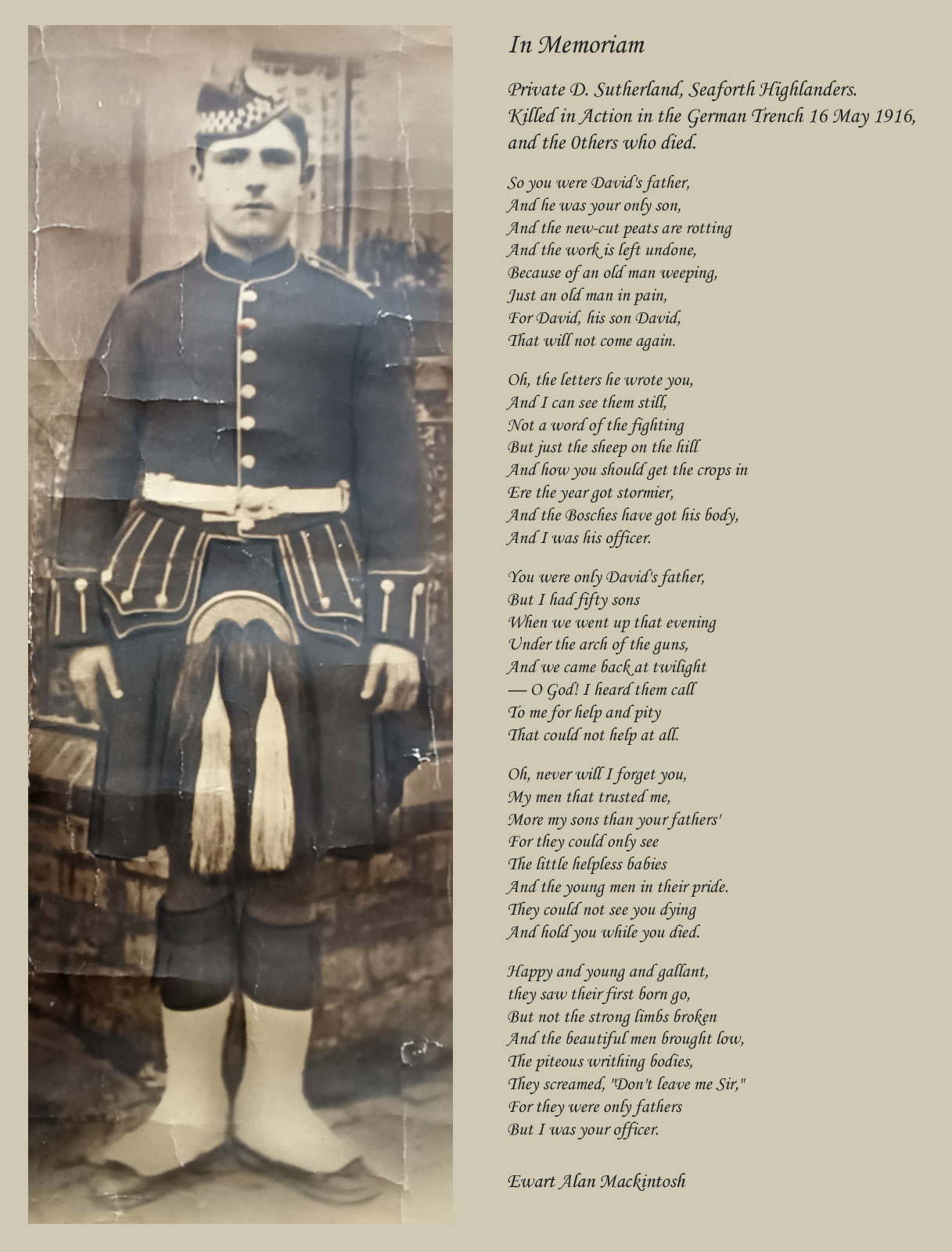
Looking back then, gardening and the walks were his distraction from the memories of the war.
Martin Richards tells the story of L Battery, Royal Horse Artillery, which repelled a German attack in WW1, with three of its members awarded the Victoria Cross
L Battery, Royal Horse Artillery, played a crucial role in the Battle of Néry on 1 September 1914, during the opening stages of World War 1. This small British unit became part of a dramatic defensive action against a much larger German force in the early morning fog in the town of Néry, France. My Great Uncle Percy was a sergeant in L Battery during the battle, but was tragically one of the 23 killed in action.
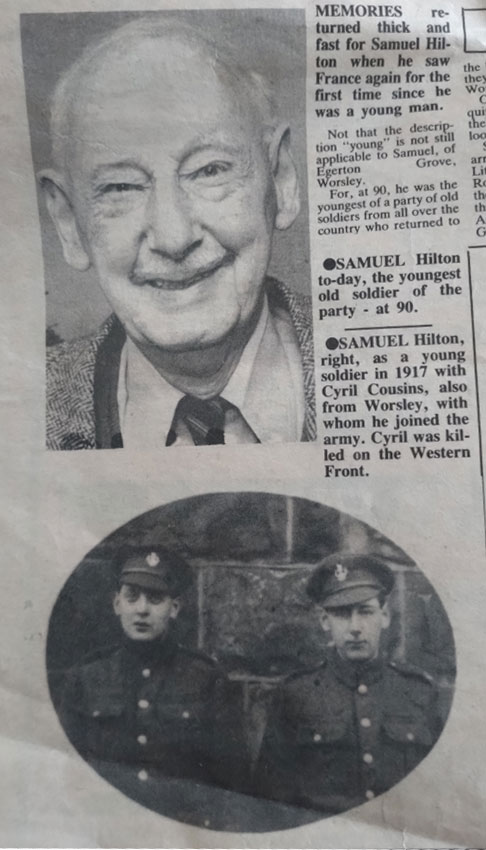
The Germans launched a surprise attack at dawn, catching L Battery and the British 1st Cavalry Brigade off-guard. Despite being outnumbered and outgunned, L Battery put up fierce resistance. Three of their six 13-pounder guns were destroyed almost immediately, leaving only one functioning gun manned by Sergeant Major George Thomas Dorrell and two others. Together, they held off the advancing German forces with continuous fire while the British cavalry units rallied to support them.
The Battle of Néry is remembered as a heroic stand, with L Battery’s actions widely celebrated. Three members of the battery, including Sergeant Major Dorrell, were awarded the Victoria Cross for their bravery.
